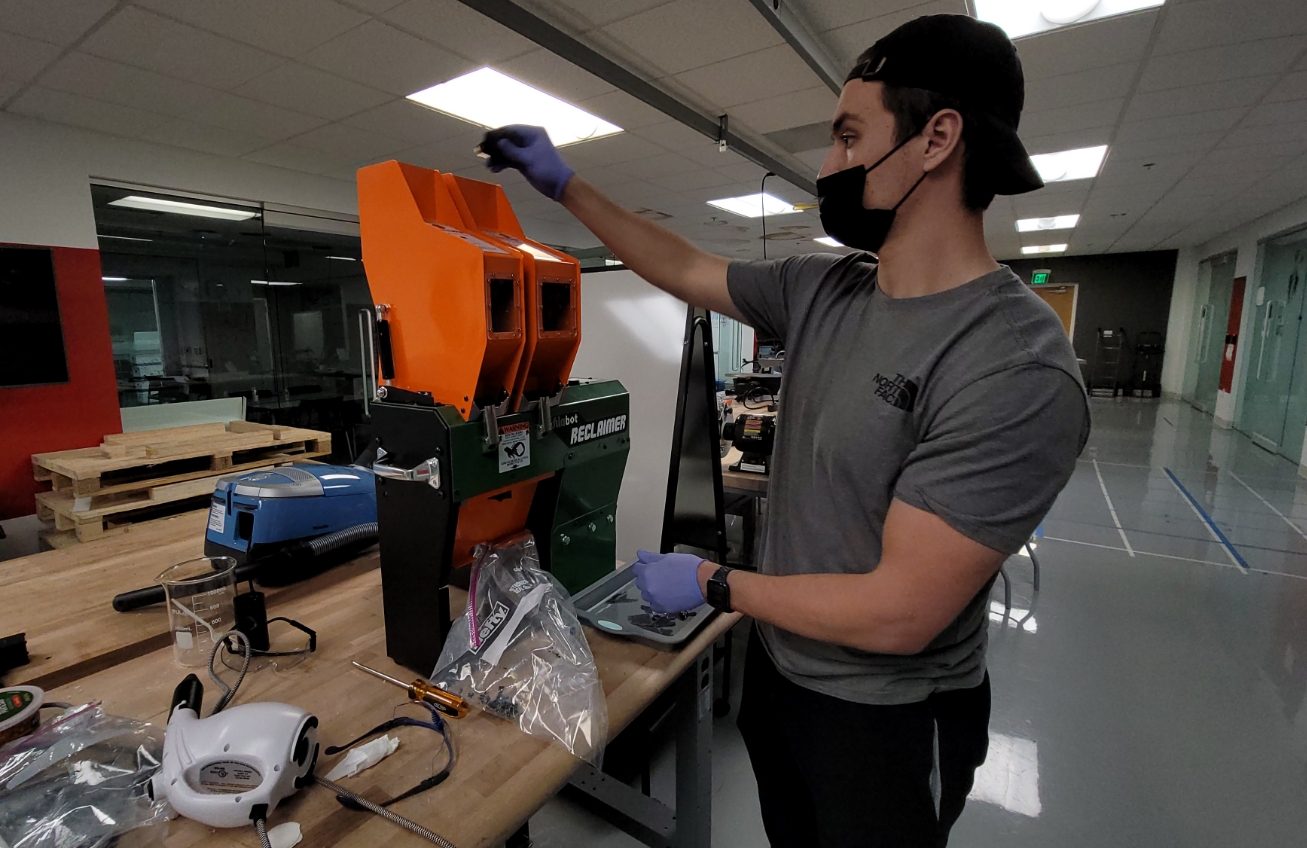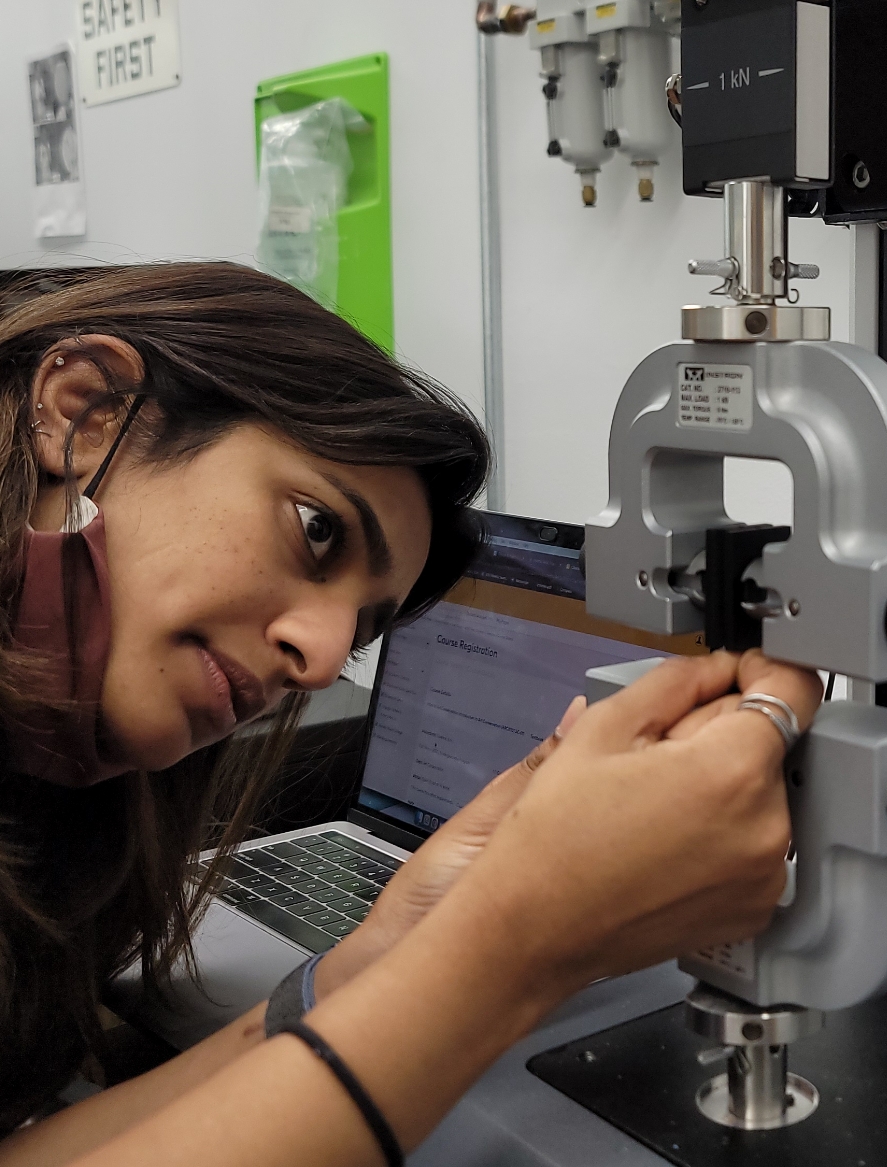During a chemical science experiment in fall 2022, engineering students JT Griffin ’23, Arpita Bhutani ’23 and Evan Flitz POM ’22 made a discovery that could lead to more fuel-efficient flying and driving. The group, mentored by Albert Dato, associate department chair and associate professor of engineering, identified a way to strengthen acrylonitrile butadiene styrene (ABS), a plastic widely used in the automotive, aerospace and electronic device industries, without adding a significant amount of weight to it.
After conducting a similar experiment on epoxy that produced successful results, the team was inspired to experiment with making a polymer that was lighter and stronger.
“The moment of our initial discovery was thrilling,” Bhutani says. “Witnessing such notable deviations from the norm before we shifted the study’s focus only served to strengthen our dedication to the research.”

JT Griffin ’23 creates nanocomposite pellets for injection molding test specimens.
The team’s research, recently published by the American Chemical Society, explains how they increased the strength of ABS by over 20% by incorporating miniscule quantities of a synthesized graphene, a single thin layer of graphite.
“We all held our breath each time a new sample was being tested,” Griffin says. “When we realized the samples with graphene proved to be stronger than anything we tested, the room exploded with excitement. It felt like the team’s hard work had come to fruition.”
Soon after the discovery, Dato helped prepare the team to present their findings at scientific conferences in Hawaii and Boston, where they described their work and fielded questions from other researchers.
“Engaging with industry experts and peers broadened our perspectives and brought us closer as a team,” Bhutani says. “While facing challenging questions from seasoned professionals and graduate students was daunting, Professor Dato’s thorough preparation and emphasis on fundamental principles equipped us to navigate these interactions with confidence.”
At Harvey Mudd, Dato researches the synthesis and applications of nanomaterials and directs the Energy and Nanomaterials Lab, in which researchers seek to develop solutions to energy and environmental challenges through applications of advanced materials. Dato continues to present the group’s findings at conferences across the country and says his students’ growth as independent researchers is what he values the most from this experience.
“They’ll start in the lab and not get great results, but you learn from that and move on to conduct more experiments,” Dato says. “Next thing you know, they’re making this discovery on their own, presenting it to the world and then publishing it in high-impact journals. And that’s what you live for as a mentor, right?”
Dato’s research is supported by a grant from the National Science Foundation.
